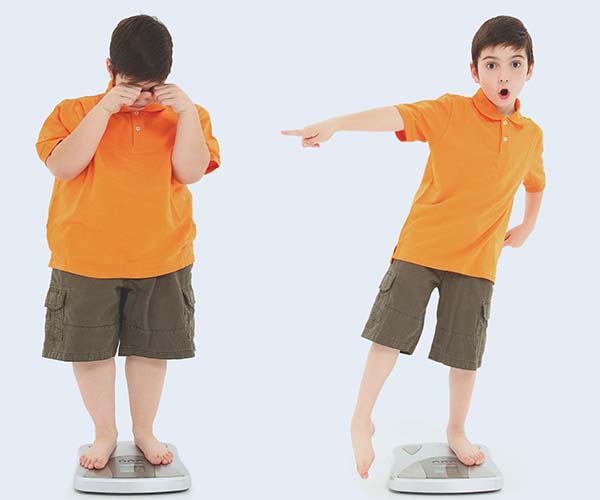
How does obesity affect height in children?
Obesity is a complex health issue where someone carries an excessive amount of body fat. It’s not just a problem for adults – the number of obese children has been steadily rising in recent years. This alarming trend in modern society raises serious concerns about the potential impacts on kids’ physical growth and development.
To effectively tackle childhood obesity, we need to understand what’s driving this issue and the wide-ranging consequences it can have on young people’s futures. By getting to the root causes and ripple effects, we can take meaningful steps to ensure a healthier path forward for today’s children.
What is obesity and how can you tell if you’re obese?
Obesity is a condition characterized by an unhealthy accumulation of body fat that can lead to serious health problems. It increases risks like heart disease, high blood pressure, type 2 diabetes, gallstones, and even some cancers. Obesity also makes people more vulnerable to other issues like stroke, dementia, and joint/bone disorders.
One of the most common ways to assess if someone is obese is by calculating their Body Mass Index (BMI). This measure relates height and weight to estimate body fat levels. A BMI over 25 is overweight, while 30 or above qualifies as obese. BMIs of 40+ indicate severe obesity. You can calculate BMI with this formula:
BMI = Weight (kg) / [Height (m)]2
Based on the BMI number, degrees of obesity are:
- 30-34: Obese Level 1
- 35-39.9: Obese Level 2
- 40+: Obese Level 3
It’s important to note that BMI is just an estimate. Some people with high BMIs may not have excess fat, like muscular athletes. For most, however, a high BMI signals unhealthy fat levels that increase disease risks. Calculating BMI is a useful initial screening tool for assessing potential obesity

How does obesity impact height?
Does being obese affect how tall you can grow? The answer is a bit complicated. Obesity itself doesn’t directly stunt growth or determine your maximum height potential. However, it can indirectly influence height in several ways during childhood and adolescence when you’re still growing.
For kids dealing with obesity, their bones may mature and develop at an accelerated pace initially. But after hitting puberty, their rate of height growth tends to slow compared to kids at a healthy weight. There’s also evidence that obese children have larger but less dense bones, putting them at greater risk of fractures near growth plates which could impair height.
Excess weight also puts more strain on the skeletal system and joints, especially the legs and spine. This can lead to postural issues, mobility problems, and general discomfort that discourages physical activity important for reaching one’s full height potential.
Obesity brings other health risks too like diabetes, heart disease, and breathing troubles. These complications can further hinder an active lifestyle and normal growth. The stigma of obesity can also detrimentally impact mental health, self-esteem, and social connectivity in ways that indirectly affect development.
So while obesity doesn’t reprogram your genes to make you shorter, it creates a ton of interrelated physiological and psychological roadblocks to attaining your maximal height during the critical growth years. Maintaining a healthy weight through balanced diet and exercise gives kids and teens their best shot at reaching their full potential stature.

The diet helps to prevent obesity and increases height
A well-balanced diet plays a crucial role not only in preventing obesity but also in supporting healthy growth and development. It’s important to understand that extreme calorie restriction or severe dieting can be counterproductive, potentially leading to muscle loss, fatigue, and nutrient deficiencies. Instead, a scientifically sound approach that emphasizes moderation and nutrient-dense foods is key to maintaining a healthy weight while ensuring adequate energy levels and promoting proper growth.
To achieve and sustain fitness while facilitating healthy growth, one should aim to reduce calorie intake slightly while increasing the consumption of fiber, vitamins, and other essential nutrients. A nourishing diet rich in lean proteins, such as lean meats, fish, eggs, and plant-based sources like legumes and soy products, can help build and maintain muscle mass while promoting a feeling of fullness. It’s also advisable to limit high-cholesterol and high-fat foods, which can contribute to weight gain and other health issues.
Incorporating a variety of fresh fruits and vegetables into one’s daily diet is essential for overall well-being. Aim for at least 500 grams of fruits and vegetables per day, including them in soups, salads, or as snacks. Opt for less sugary options like berries, citrus fruits, leafy greens, and cruciferous vegetables, which provide a wealth of vitamins, minerals, and fiber to support growth and development.
By adopting a balanced and nutritious dietary approach, individuals can not only maintain a healthy weight but also ensure that their bodies receive the necessary nutrients to support optimal growth and development.



